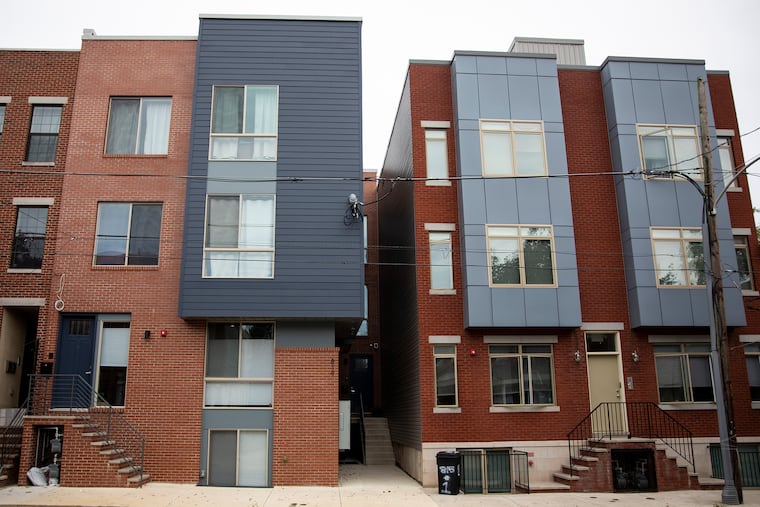Thinking about buying a condo? Here’s what you need to know.
Before buying a condo, carefully consider your current and future lifestyle needs, plus your financial situation.

Hate to mow the lawn and trim the hedges? Wishing you had a no-maintenance pool or barbecue pit? Are your finances such that having to lay out $5,000 or more for a new HVAC unit or roof would be a burden? If you answered yes to these questions, condo living may be for you.
However, if the desire to have a large backyard outweighs the time you’ll need to spend maintaining it, then another type of property such as a townhouse could be for you. Or if sharing walls with a neighbor (as well as ceilings and floors) might shatter your peace, a condo may not be the answer. Condos tend to work best for those who have no problem with apartment living.
Buying a condo can be a great way to dive into homeownership without worrying about much of the upkeep that comes with single-family homes and townhouses. However, condos aren’t for everyone, so it’s best to figure out what your lifestyle and budget needs are first.
What is a condo?
Short for condominium, a condo is a single unit within a multiple unit property — think apartments, except that you own it. It can be one of many units in a shared structure like a high-rise building. Your individual unit is privately owned, whereas other areas are shared — amenities which may include a park, pool, playground, gym and a dog area.
Shared areas of condos are usually managed by a condo association, says David Lee, a Realtor with Keller Williams Realty in Orange County, Calif.
“A condo owner has the title to their individual unit but shares ownership of the common areas,” Lee says. “Being a part of an association, condo owners typically pay an established monthly fee to cover their budget and expenses set by the association.”
Condo associations can differ based on the requirements of the individual property. Some may impose additional fees to cover shared expenses such as unexpected building repairs or even adding new amenities that are approved by the condo board.
Pros of living in a condo
Lower maintenance, more affordability. Exterior maintenance on condo buildings (often with the exception of windows) is handled by the homeowners association (HOA). This includes lawn and shrub care, driveways and walkways, roofs and exterior siding. Because condos tend to be more compact and require less land than single-family homes, they can be a more affordable way to own property. Property taxes tend to be lower, as well.
Better sense of security. Some condo buildings have security staff, and there’s clearly safety in numbers. Having many other people around can be comforting, especially to older and single people. This can especially important if you work odd hours or travel frequently.
Opportunities to be social. Some condo communities and their respective HOAs organize social events such as pool parties, barbecues and doggy play dates. And because you see your neighbors in hallways and in elevators, you’re more likely than not to meet them in person.
Amenities. Depending on the condo community, you may have access to such top-notch amenities as a grilling area, business center, pool, dog park, covered parking, clubhouse and more, and the cost of enjoying these perks is shared among all residents.
Cons of living in a condo
Investment risk. You are all in ownership of the property together. If one or many people fail to pay their dues, the entire community may suffer financially. Likewise, if one or more owners goes into foreclosure, the units could change hands at a steep discount, affecting everyone’s property values.
Less privacy, possibly many renters. Because condominiums share common areas such as the lobby, hallways and amenities, a condo might not be for you if you value your privacy. You’ll also be sharing walls, ceilings and floors with adjoining owners, so noise can become an issue. And keep in mind that some complexes may have many renters, with a constant stream of moving vans and tenants who may not have as great an interest in the community as homeowners.
Parking and storage issues. Many condo buildings don’t have assigned parking, so you may have to lug your groceries a long way to your unit. Storage will often to limited to a small closet or two, and there may be no outdoor storage space at all.
HOA rules, fees. One of the biggest complaints about living in a condo community is that HOA rules can regulate everything from trash pickup to what can be stored on your patio, how many pets you can have, and whether you can rent out your unit. Breaking the rules can result in fines or even foreclosure. And HOA monthly fees tend to go in one direction: up.
So how do you decide?
Condo living is best suited for people who don’t want to do a lot of upkeep. It’s also best for those who want the use of shared amenities without dropping a ton of cash for them.
A condo "can be a convenient choice for those wanting to live in the heart of a city,” Lee says. “Not only do you have amenities within the condo, but you could be within walking distance to public transportation, shopping and dining options.”
Whatever your preferences, carefully consider your current and future lifestyle needs, plus your financial situation. Consult with a real estate professional who specializes in condos to protect your interests during the buying process.